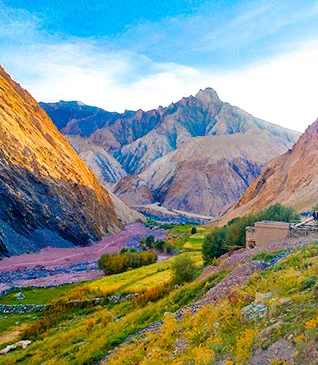Table of Content
As responsible citizens, it is our duty to be mindful of our surroundings and adopt Sustainable Tourism practices whenever we travel, especially while trekking. Trekking remains a powerful way to connect with nature and often takes us through remote and fragile environments, making it even more crucial for trekkers and us to be extra careful.
Trek the Himalayas, as a Responsible Trekking Company, sticks to Eco-Tourism and follows practices that are sustainable for the mountains. TTH inspires its trekkers to explore nature while safeguarding its delicate balance for generations to come, additionally, TTH works closely with local communities to ensure they benefit economically and culturally from trekking activities. At Trek the Himalayas, we believe that trekking and Sustainable Tourism should go hand in hand, so we follow the following practices of ecotourism.
Heal Himala- An Eco-Tourism Initiative
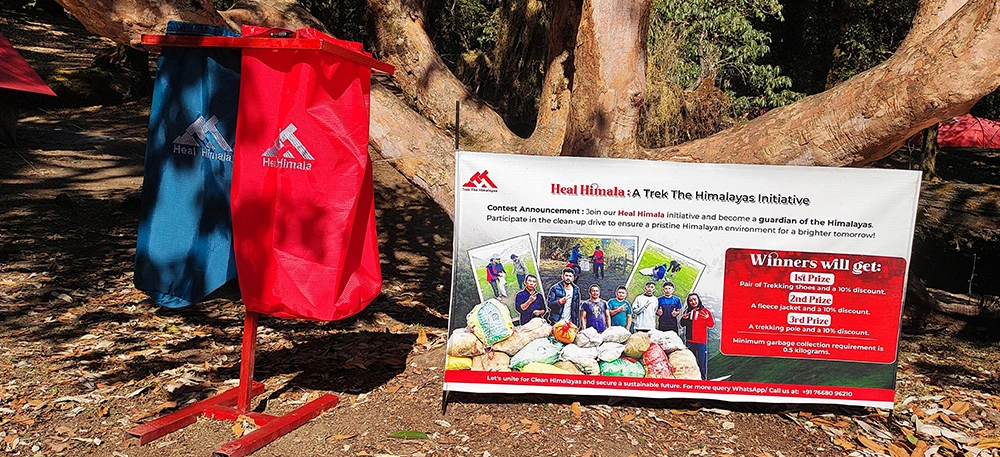
As part of its duty to preserve the pristine beauty of the Himalayas, Trek the Himalayas has launched impactful initiatives such as “Heal Himala”, aimed at promoting Eco-Tourism in India and reviving the natural charm of the mountains. Through this campaign, they organize regular cleaning drives in mountain trekking regions to tackle the growing issue of waste along trekking trails.
During these drives, the team, along with volunteers and trekkers, carries trash bags to collect garbage found along the routes. The collected waste is then brought down to the base carefully segregated and weighed on-site. Afterward, the segregated trash is sent for proper processing and disposal, ensuring it does not harm the environment further.
Over the years, TTH has conducted numerous cleanup drives along some of the most popular trekking routes, including Goecha La, Roopkund, and Kuari Pass. These efforts have led to the removal of significant amounts of waste from the mountains, restoring their natural beauty and ensuring a cleaner environment.
This initiative not only helps preserve the vibrant villages or fragile ecosystem of the Himalayas but also instills a sense of responsibility among trekkers, encouraging them to be more mindful of their actions. Through Heal Himala, we aim to leave the mountains better than we found them, ensuring that future generations can continue to witness their breathtaking beauty. Together, we strive towards healing the Himalayas and protect these majestic landscapes for years to come.
Leave No Trace - “Leave Only Footprint, Take Only Photograph”
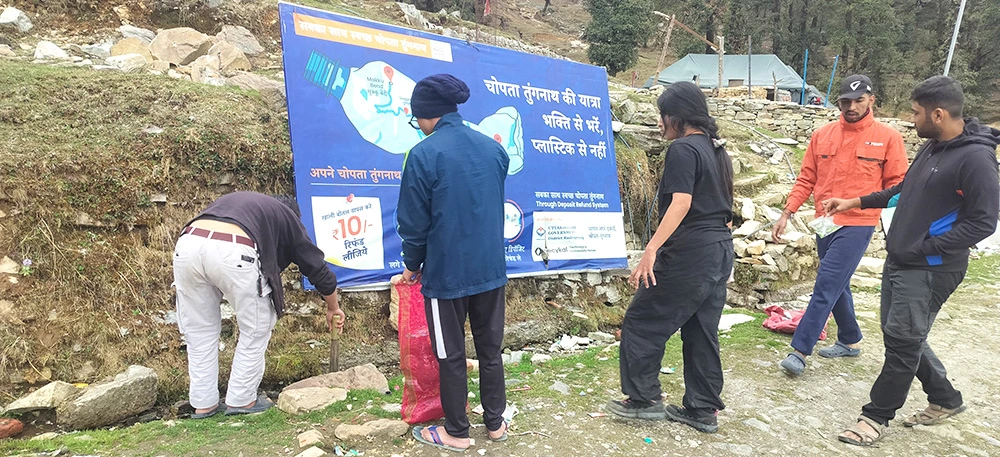
As we trek through the lesser-known paths, we make sure to leave no trash behind and leave the mountains more pristine than we found them. On each of our journeys to the mountains, we encourage our trekkers to not litter around and use trash bags. We ourselves avoid using single-use plastic and encourage our trekkers to avoid using it too. We motivate our trekkers to get their own reusable water bottles and avoid using plastic bottles. Our team uses utensils and vessels made from brass or steel for cooking and eating, allowing them to be washed and reused, also eliminating the need for one-time-use plastic.
Empowering Local Communities with Sustainable Jobs
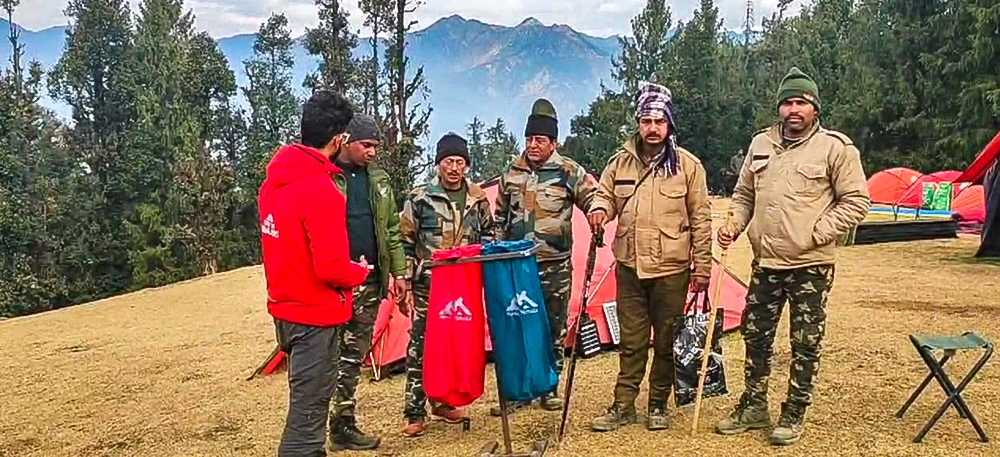
At Trek the Himalayas, we strongly believe in prioritizing local employment to create a sustainable and enriching trekking experience. By hiring Himalayan locals as trek guides, porters, and helpers, we not only enhance the quality of our treks but also contribute significantly to the development of the local economy. The people who have lived in these regions for generations possess an unparalleled understanding of the terrain, weather patterns, and cultural significance of the trails. Their expertise ensures that trekkers have a safe and immersive experience, enriched with local stories, traditions, and invaluable knowledge about the flora, fauna, and history of the region. Employing locals also helps preserve the cultural heritage of the area, as their involvement allows them to share their unique way of life with visitors, promoting a deeper connection between trekkers and the communities.
Employment in Rural Areas
Trek the Himalayas plays a crucial role in promoting reverse migration by creating sustainable employment opportunities for the locals. Employing locals provides a stable source of income for them, enabling them to support their families and invest in their communities. It also reduces migration to cities in search of work, allowing them to sustain their traditional lifestyle while benefiting from tourism. By prioritizing local employment, TTH aims to create a trekking ecosystem that not only offers memorable experiences to trekkers but also uplifts the lives of the people who call these majestic mountains home.
Additionally, using their homestays and the demand for locally sourced food, handicrafts, and transportation services by our trekkers further boosts the regional economy and promotes local small businesses. This approach of sustainable tourism ensures that tourism has a positive, lasting impact on both the visitors and the local communities.
Economic Development in Villages- Local Empowerment
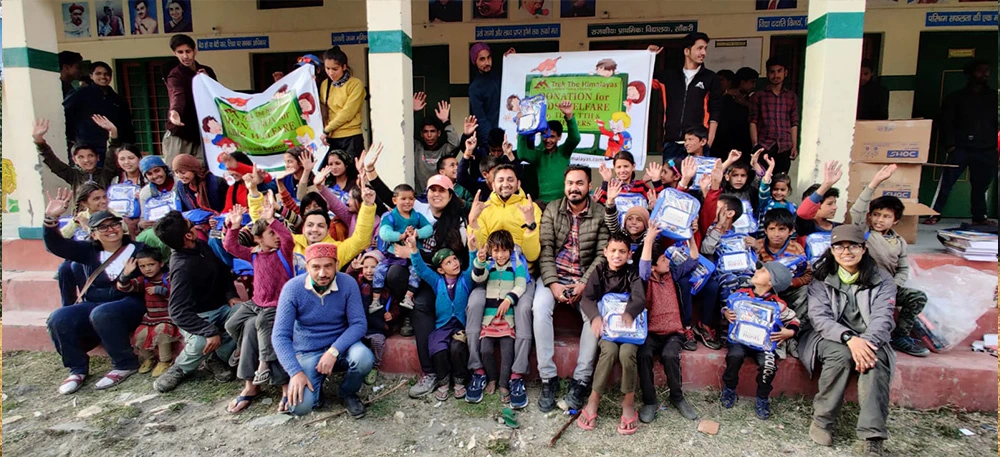
Trek the Himalayas recognize and appreciate the vital role that local village communities play in sustainable tourism. Recognizing the importance of their contribution, TTH prioritizes the involvement of Himalayan villagers in their trekking journeys. We also include stays in local homestays to contribute to the locals and provide them with a steady source of income. This steady income stream helps improve living standards, encourages local businesses, and supports various small initiatives that contribute to the long-term prosperity of the village and promote economic development in the villages.
Our approach ensures that tourism in the region is sustainable and inclusive, benefiting not just the visitors but also the communities that host them. We aim to create a harmonious partnership between trekkers and locals and create a sustainable model of tourism that benefits everyone involved while safeguarding the beauty and culture of the Himalayas for future generations.
Embracing Local Culture
As we take our trekkers through small villages and hamlets, we let them embrace the community culture. Since our trek leaders are localities they know about the cultural stories and folktales better and they share them with the trekkers too, making the journey a rich cultural trekking experience too. There are local markets, where our trekkers enjoy buying handicrafts and local items. This not only adds to the local economy but also promotes the local culture.
Sustainable travel and tourism is more than just a trend for us, we actually consider making this world a better place to live, while we continue with our treks. We make sure to maintain the serenity of a place as we let trekkers experience the beauty around it. These initiatives empower the locals to stay connected to their roots white benefiting from tourism, thus restoring the beauty of the mountains and rural communities and promoting a balanced lifestyle in the Himalayan regions.
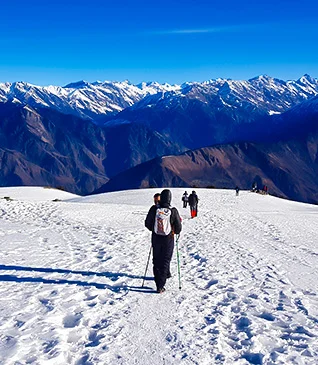
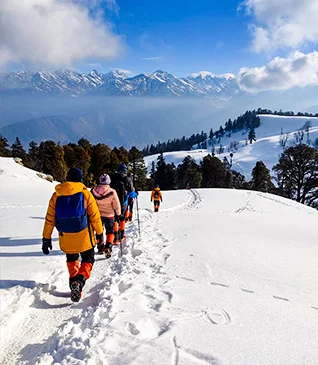
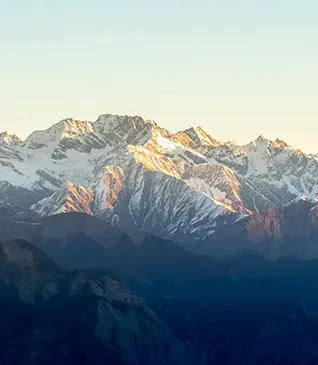

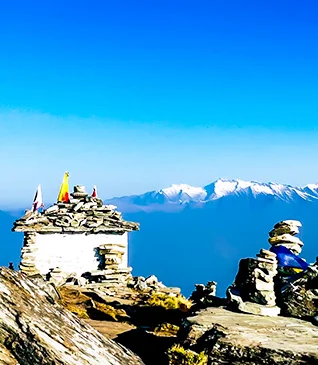
.webp)
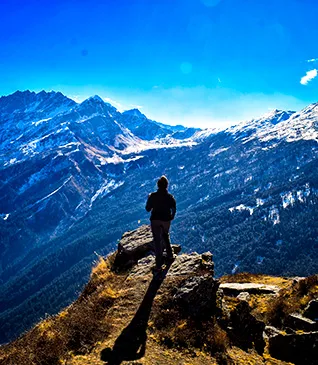
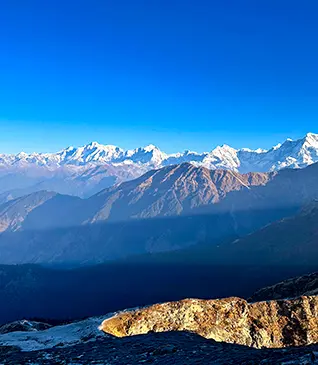
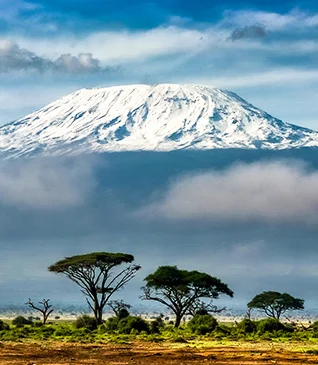
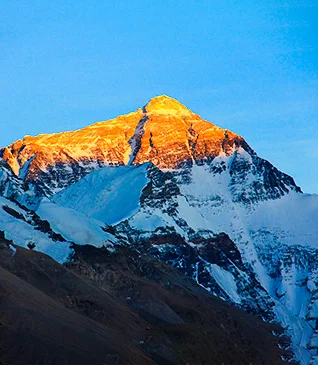
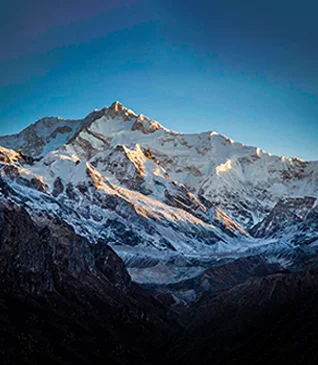
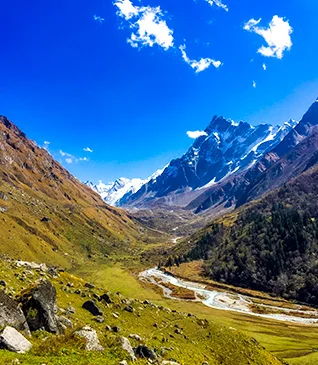
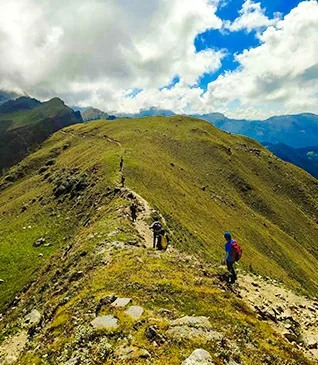
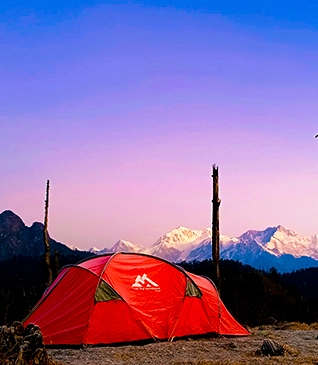
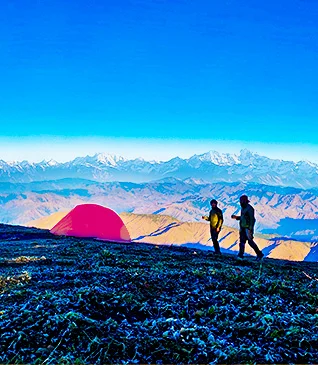
.webp)
.webp)
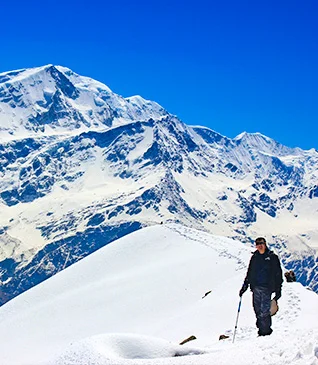
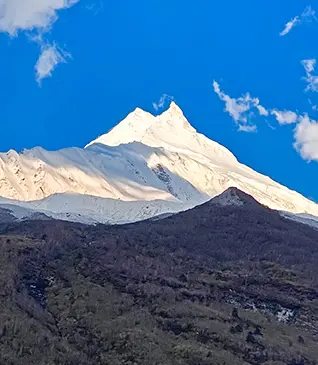
.webp)
.webp)
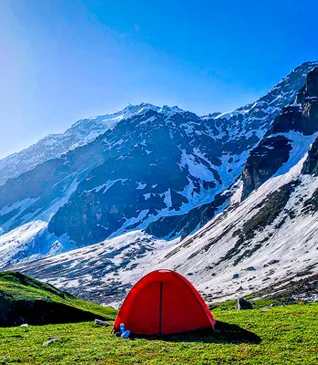
.webp)
